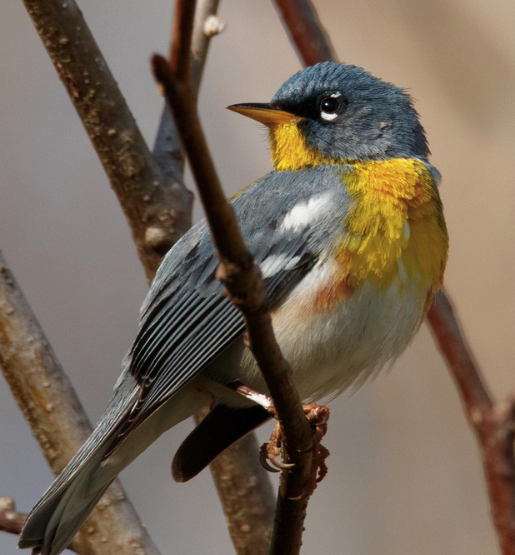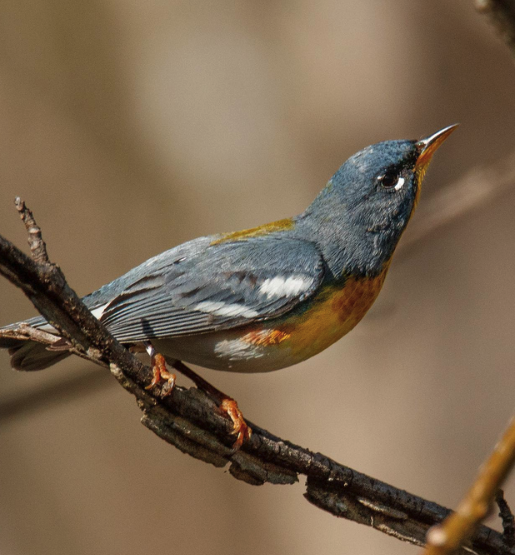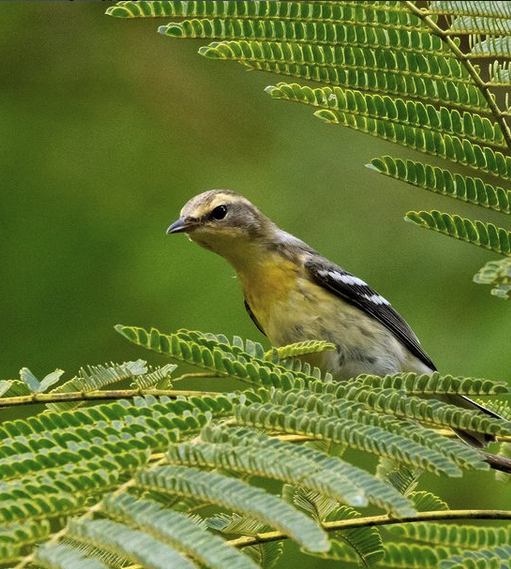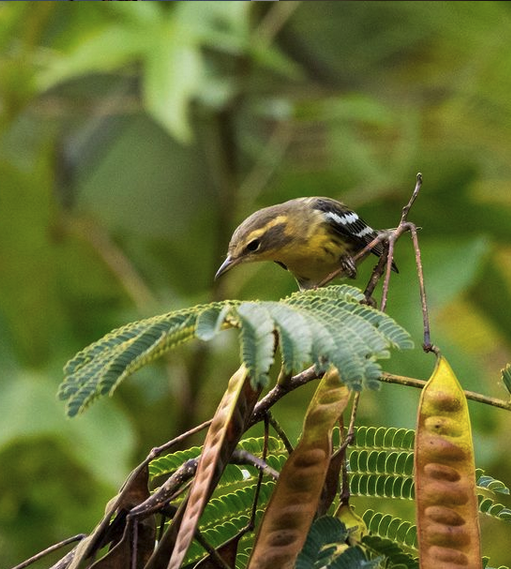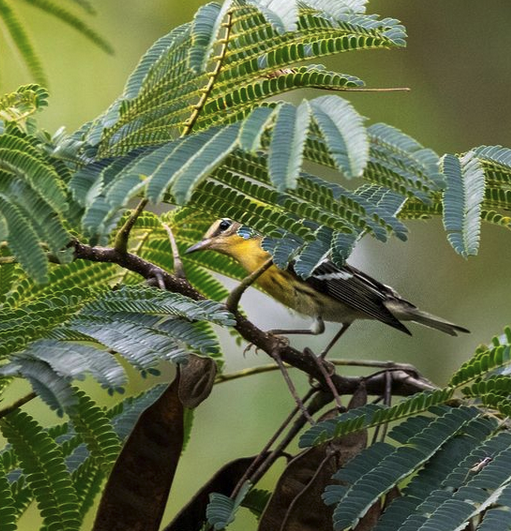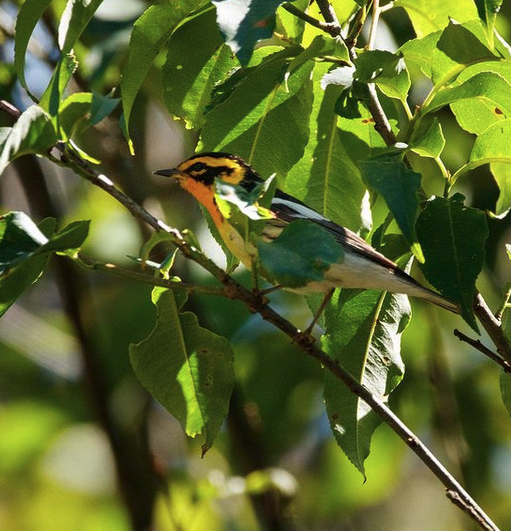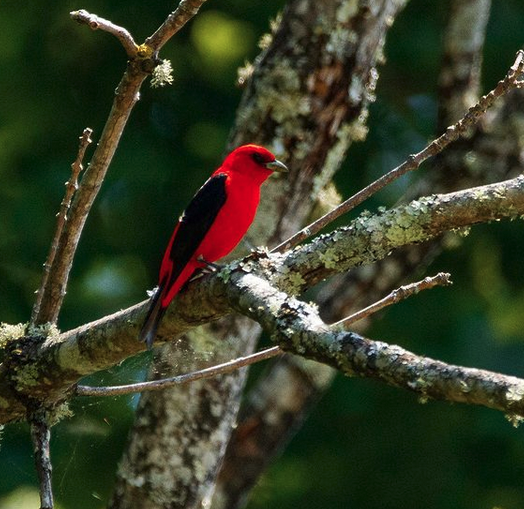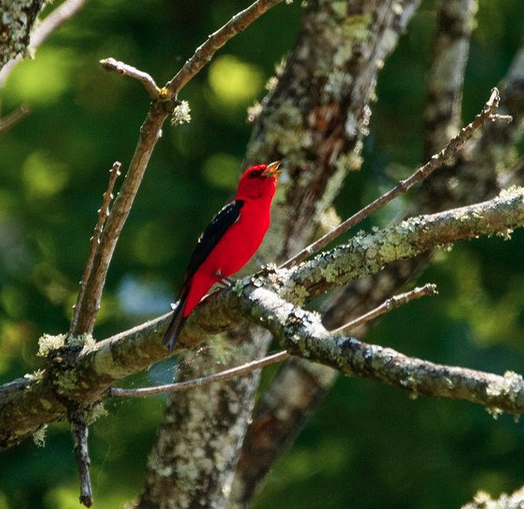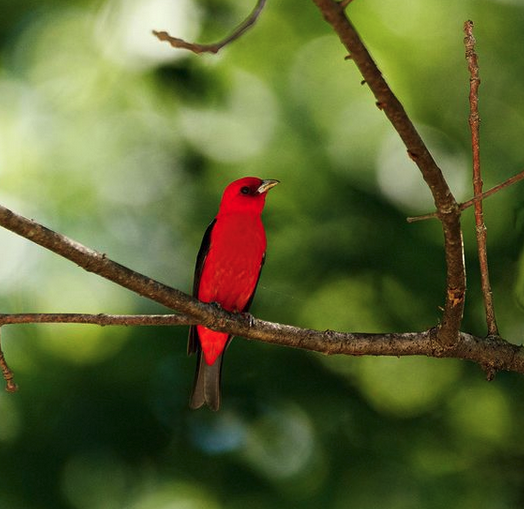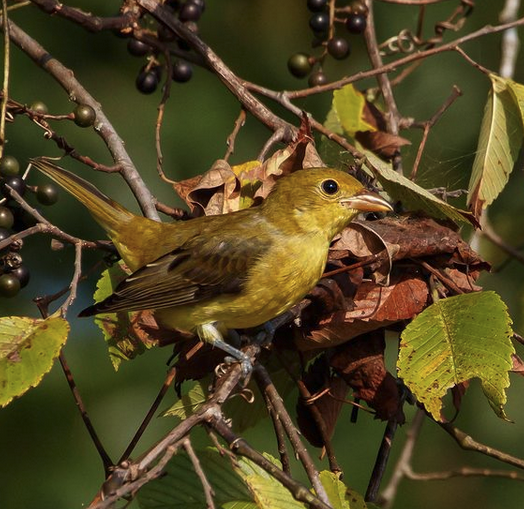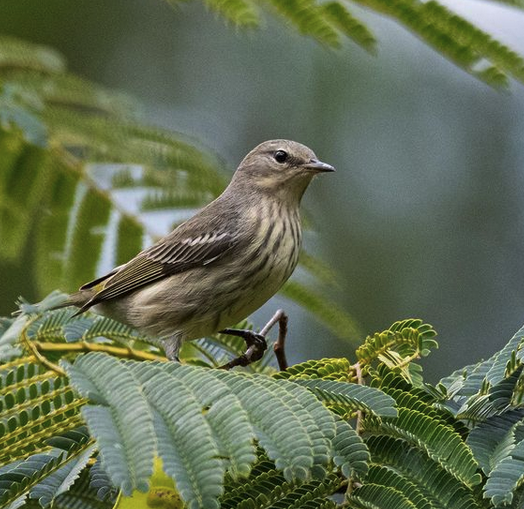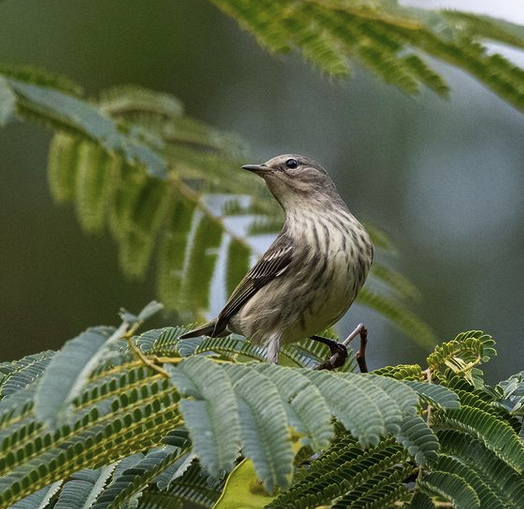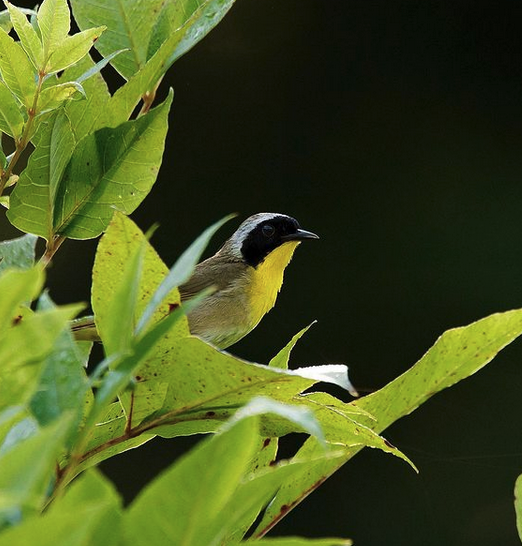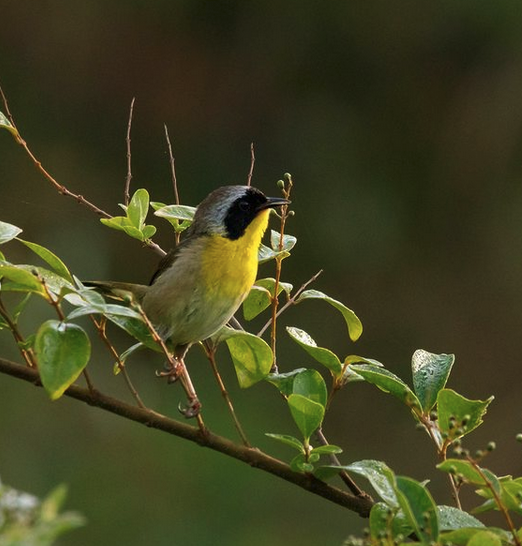By: Sally Siko
I was thrilled to spot this pair of Blue gray Gnatcatchers while birding with friends earlier this week near Old Bynum Bridge in Pittsboro, NC.
We stood under the tree for several minutes watching the pair bring materials to one another as they shaped their tiny nest.
The Gnatcatchers worked tirelessly to build up the fragile cup shaped structure, stopping only briefly to grab a snack in between supply flights.
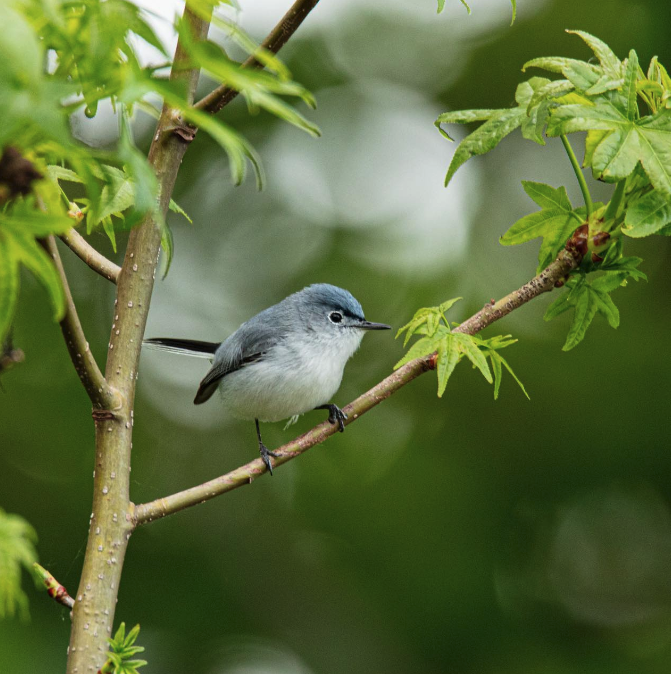
I also found several more Gnatcatchers while birding in Murrells Inlet SC too and they were just as entertaining to watch as the pair in Pittsboro.
So much energy wrapped up into one small body, they can be tough to photograph yet it was a real joy to encounter them while they searched for a six (or eight) legged snack in the leaves 🙂
Aren’t they sweet?
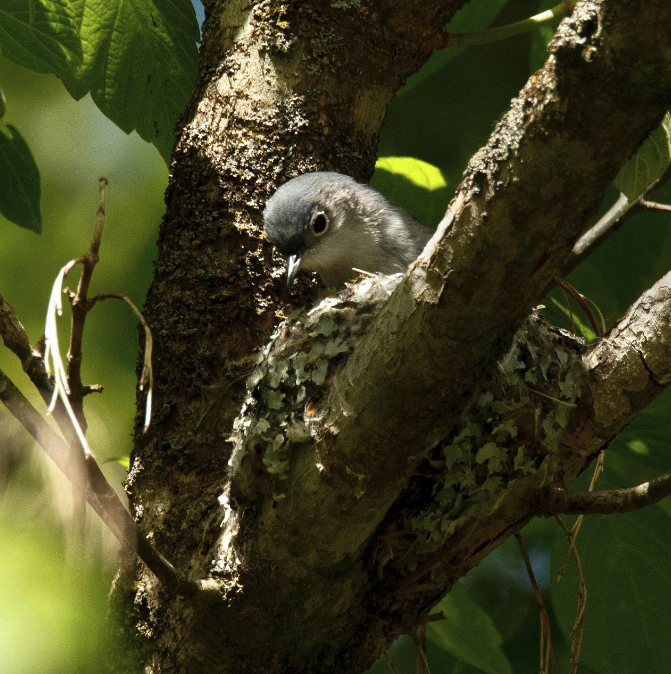
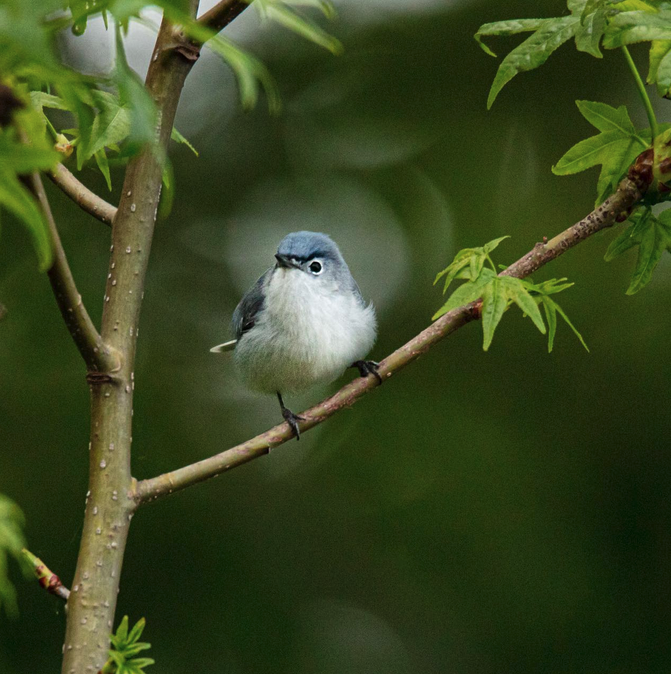
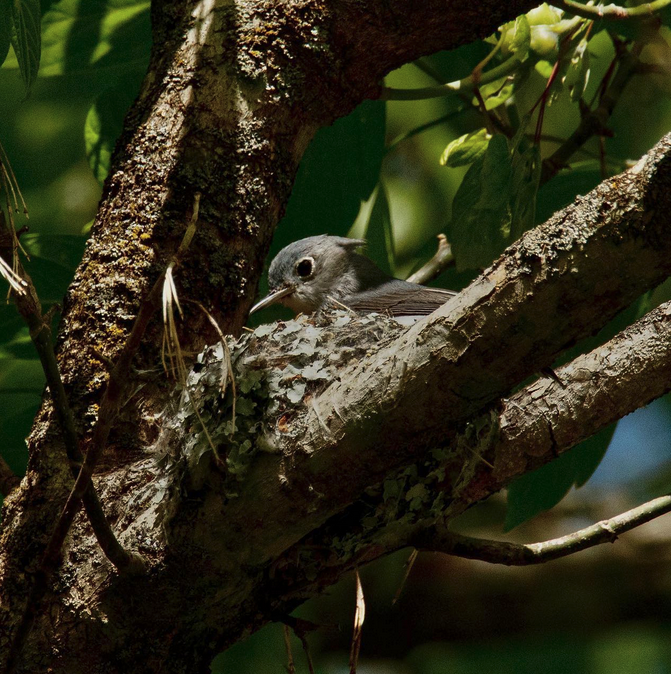
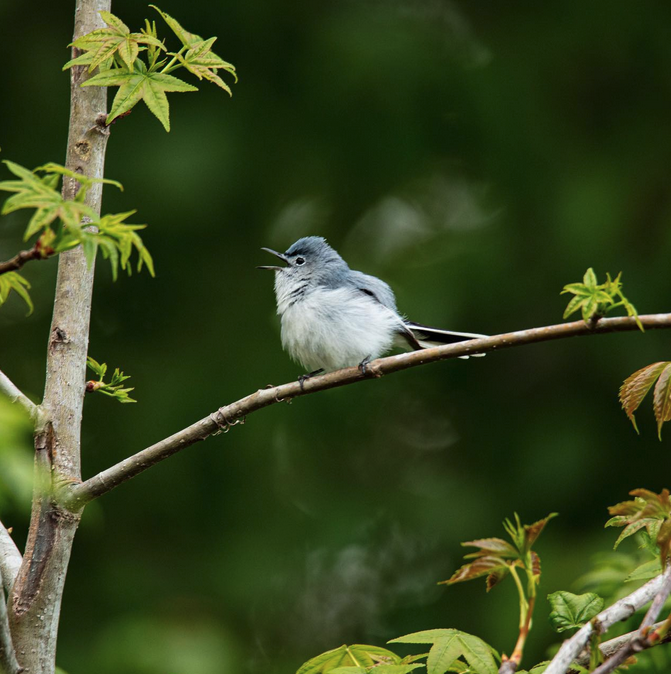
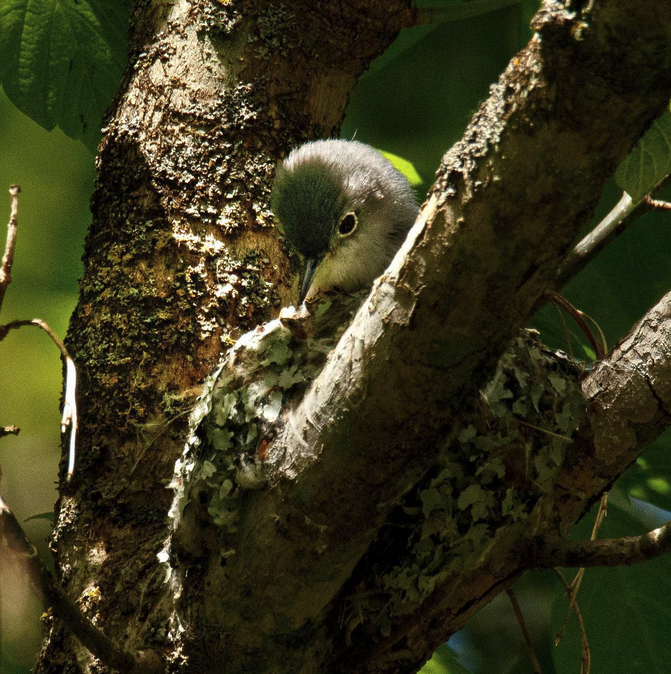
Although they will hunt for all kinds of insects they don’t actually eat many gnats (unfortunately, lol!) as one would assume their name implies.
In fact, their favorite food are spiders and lucky for them we’ve got plenty of those here in the Tarheel state for them to find.
Hovering in mid air like tiny helicopters, Blue-Gray Gnatcatchers will glean for arachnids in the mid to upper canopies of trees, raids insects from spiderwebs, and (as seen in these photos) are even known to use their webs as nesting material to bind tiny pieces of lichen together.
These lovely little ones started to arrive in NC a couple of weeks ago and will stick around until mid September. The best spots to find Blue-gray Gnatcatchers are in habitats containing a mix of deciduous forests and wetlands, ponds, lakes and rivers.
They are particularly active in the morning hours as they need to make up for the loss of calories spent while sleeping by hunting for insects as soon as the sun rises.
Photos by @sally_siko of @bestlife_birding on my beloved full frame 50MP beast, the mighty @canonusa #5Ds

